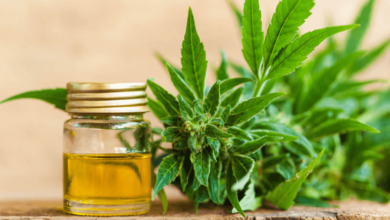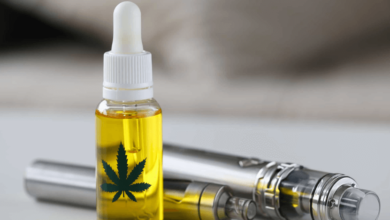Does CBD Affect Anesthesia?
The interaction between CBD and anesthetic agents is an emerging area of interest in medical research. Preliminary studies suggest that CBD may influence the pharmacokinetics of anesthetics, potentially altering their effectiveness and safety. This raises important questions about how CBD use prior to surgery might affect anesthetic protocols. Understanding these dynamics is essential for optimizing patient outcomes in surgical settings. What implications might this have for patients and healthcare providers alike?
Understanding CBD and Its Mechanism of Action
Cannabidiol (CBD), a prominent phytocannabinoid derived from the Cannabis sativa plant, exhibits a complex mechanism of action that interacts with the endocannabinoid system (ECS) in the human body.
This interaction mediates various physiological responses, contributing to notable CBD benefits such as pain relief and anti-anxiety effects.
However, users must consider potential CBD side effects, including drowsiness and gastrointestinal disturbances, for informed decision-making.
The Role of Anesthesia in Surgical Procedures
Although the primary goal of anesthesia is to ensure patient comfort and safety during surgical procedures, its role extends beyond mere sedation.
Various anesthesia types, including general, regional, and local, are utilized to optimize surgical safety. Each type is tailored to the procedure’s demands, facilitating not only pain management but also maintaining vital functions, which is critical for successful surgical outcomes.
Current Research on CBD and Anesthetic Interactions
Recent studies have increasingly focused on the interactions between cannabidiol (CBD) and various anesthetic agents, revealing potential implications for clinical practice.
Research indicates that CBD interactions may modulate anesthesia impact, potentially altering the pharmacokinetics of anesthetics.
These findings necessitate further investigation to fully understand the scope of CBD’s effects on anesthetic efficacy and safety, underscoring the importance of informed clinical decision-making.
Considerations for Patients Using CBD Before Surgery
What considerations should patients take into account when using CBD prior to surgery? Patients must prioritize patient safety by adhering to established dosage guidelines, as CBD can potentially interact with anesthetic agents. Understanding the pharmacokinetics of CBD, including its effects on metabolism, is crucial. Additionally, patients should evaluate their individual health conditions and possible contraindications to ensure a safe surgical experience.
Communicating With Healthcare Providers About CBD Use
Effective communication with healthcare providers regarding CBD use is essential for ensuring patient safety and optimizing surgical outcomes.
During anesthesia consultations, patients must prioritize CBD disclosure, detailing dosages and frequency of use. This transparency allows providers to assess potential interactions and adjust anesthetic plans accordingly, ultimately enhancing the efficacy of care while safeguarding against unforeseen complications related to CBD consumption prior to surgery.
Conclusion
In conclusion, the interplay between CBD and anesthesia is a complex dance that could dramatically alter the surgical landscape. As researchers uncover the intricate ways CBD influences anesthetic pharmacokinetics, the potential for profound ramifications on patient safety looms large. It is imperative for patients to divulge their CBD usage—failing to do so could lead to a catastrophic misalignment of anesthetic efficacy and safety, transforming a routine procedure into a precarious tightrope walk between risk and recovery.




